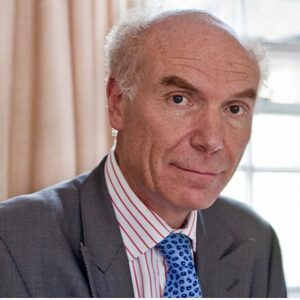Biochemistry scholar says private sector produces some of ‘best science’
An unpopular opinion, biochemistry Professor Terence Kealey believes scientific research is better off without so much government funding.
Unlike Kealey, many scientists and scholars are upset by the Trump administration’s efforts to cut research grants — primarily ones that are ideologically-focused — through the National Institutes of Health, National Science Foundation, Department of Agriculture, and other agencies.
Thousands reportedly protested during “Stand Up for Science” rallies in March across the country.
But the University of Buckingham professor emeritus and Cato Institute scholar believes that the reliance on government funding for research has gotten in the way of economic progress.
“If the government funds science, it actually takes the best scientists out of industry, puts them in the universities, and then industry in fact suffers,” Kealey told the libertarian Reason Magazine in a recent interview.
The interview continued:
In academic science, process often takes precedence over outcomes. Researchers are incentivized to publish peer-reviewed papers that garner citations, which helps them secure prestigious academic posts and more federal grants.

“What happens under peer review under the government is that there’s homogenization, and only one set of ideas is allowed to emerge,” says Kealey (pictured).
The pressure to publish has created a positivity bias, where an increasing number of papers supporting a hypothesis are published, while negative findings are often buried. …
In an influential 2005 paper, Stanford University professor John Ioannidis flatly concluded that “most published research findings are false.” He argued that the current peer review model encourages groupthink, writing that “prestigious investigators may suppress via the peer review process the appearance and dissemination of findings that refute their findings, thus condemning their field to perpetuate false dogma.”
“You end up with a monolithic view, and so you crush what’s so important in science, which is different ideas competing in a marketplace of ideas,” says Kealey.
Jay Bhattacharya, a Stanford University professor who was lambasted for opposing prevailing narratives about COVID-19, also voiced concerns about politics and government research funding.
“If you have an NIH director that [sets policy and distributes money], they control the minds of so many scientists. It’s an inherent conflict, and nobody’s going to really speak. Nobody’s going to disagree with them because that’s the cash cow,” Bhattacharya, the new National Institutes of Health director, told Reason.
Until World War II, the American government “basically didn’t fund science,” Kealey told the Accad and Koka Report podcast in 2021.
That means Thomas Edison, Alexander Graham Bell, and the Wright Brothers created some of the world’s most influential inventions without public funding, Reason pointed out.
While Kealey said he does not oppose government funding for scientific research overall, he believes more of it should be privatized.
“If you look at, particularly, 19th century Britain when science was absolutely in the private sector, we have some of the best science,” he told Reason.
MORE: U. Connecticut gives out DEI grants to make marine science, math ‘more diverse’
IMAGE CAPTION AND CREDIT: A scientist works near a microscope. Suwannabar Kavil/Canva, Cato Institute
